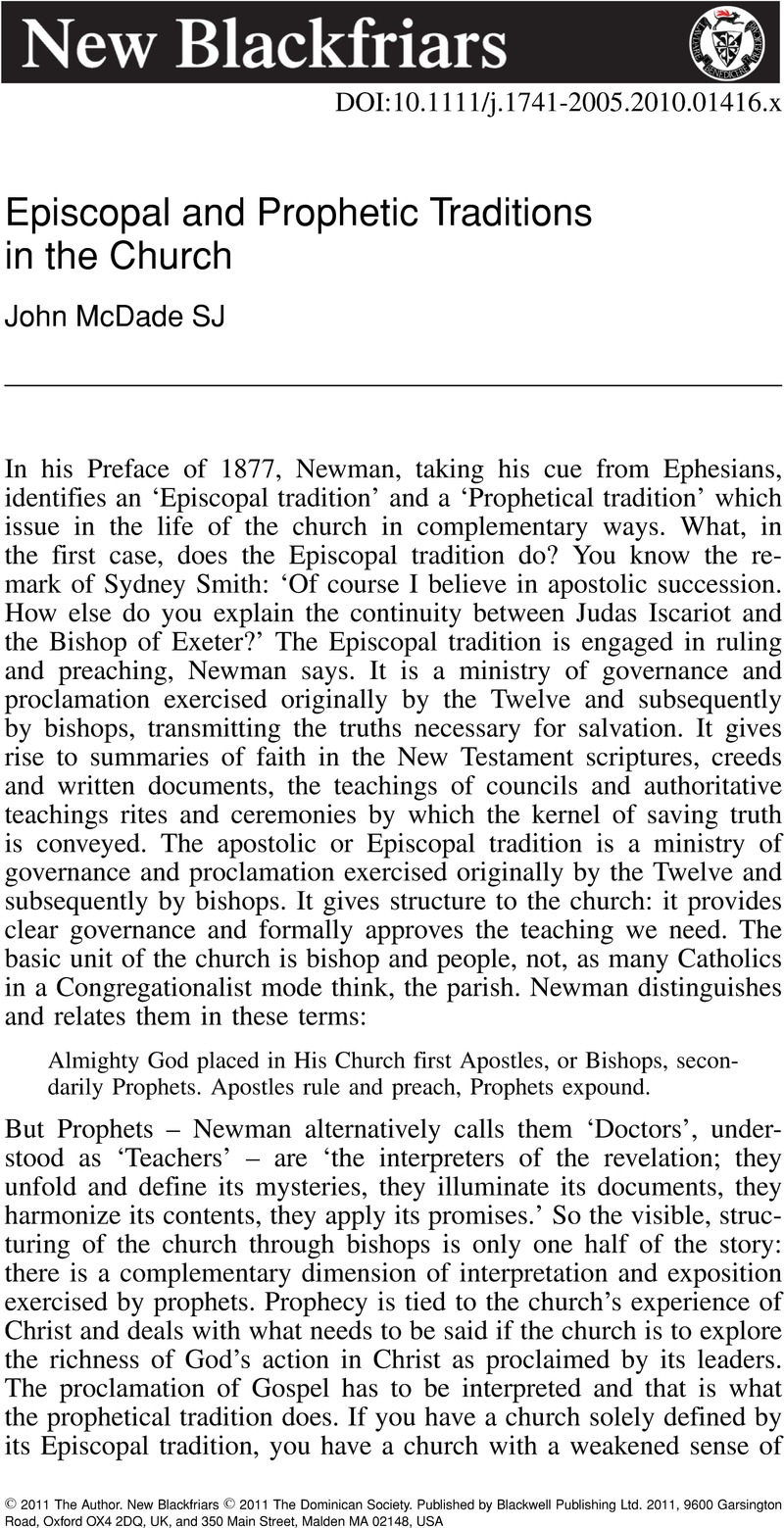Article contents
Episcopal and Prophetic Traditions in the Church
Published online by Cambridge University Press: 01 January 2024
Abstract

- Type
- Original Articles
- Information
- Copyright
- Copyright © 2011 The Author. New Blackfriars © 2011 The Dominican Society.
References
1 Dulles, A., ‘The Threefold Office in Newman's Ecclesiology,’ Newman After a Hundred Years, ed. Ker, I & Hill, A.G. (Clarendon Press, Oxford 1990), 375–00; 395Google Scholar.
2 Kerr, Fergus OP, ‘Tradition and Reason: Two Uses of Reason, Critical and Contemplative’, International Journal of Systematic Theology 6 (1004), 37–49; 41,43CrossRefGoogle Scholar.
3 J.H. Newman, to Robert Ornsby, an editor of The Tablet, in Letters and Diaries xx, 426.
4 ‘For the simple truth, verified through the centuries, is that the teaching function in the church at its most serious, profound and influential has actually been exercised most often by others than bishops. The latter have rather a regulative function with regard to the transmission of tradition. From church history one can only conclude that, if one were to locate and identify the “teaching church” in terms of the importance of services rendered, then “hierarchical status” in the Church has not been essential or even always particularly relevant, except in so far as teaching in the name of the Catholic Church requires due authorisation or at least good standing as a church member.’ (Murray, Robert SJ, ‘The Teaching Church and the Thinking Church,’ The Month, 1990, 310–9Google Scholar; 315).
5 Phrases from H.D. Weidner, op. cit., lxviii.
- 1
- Cited by




